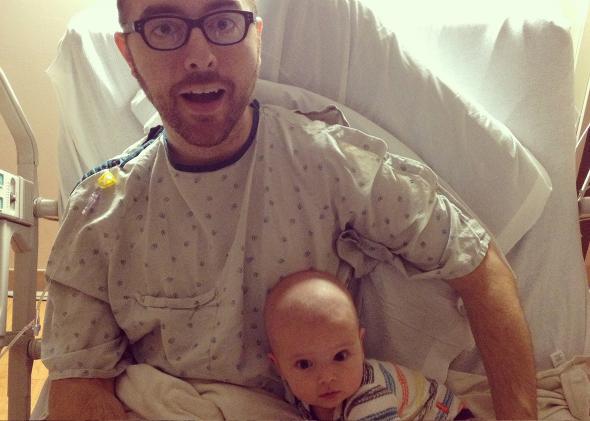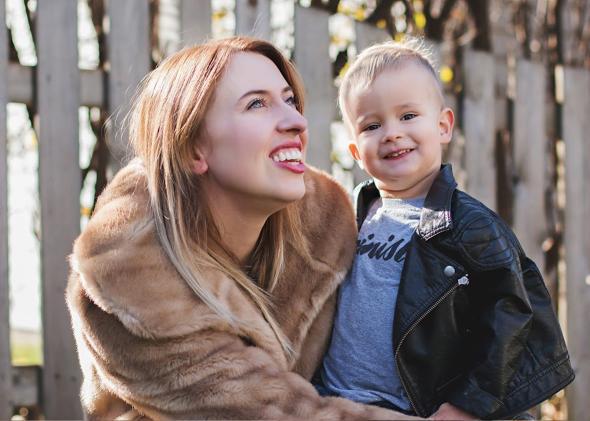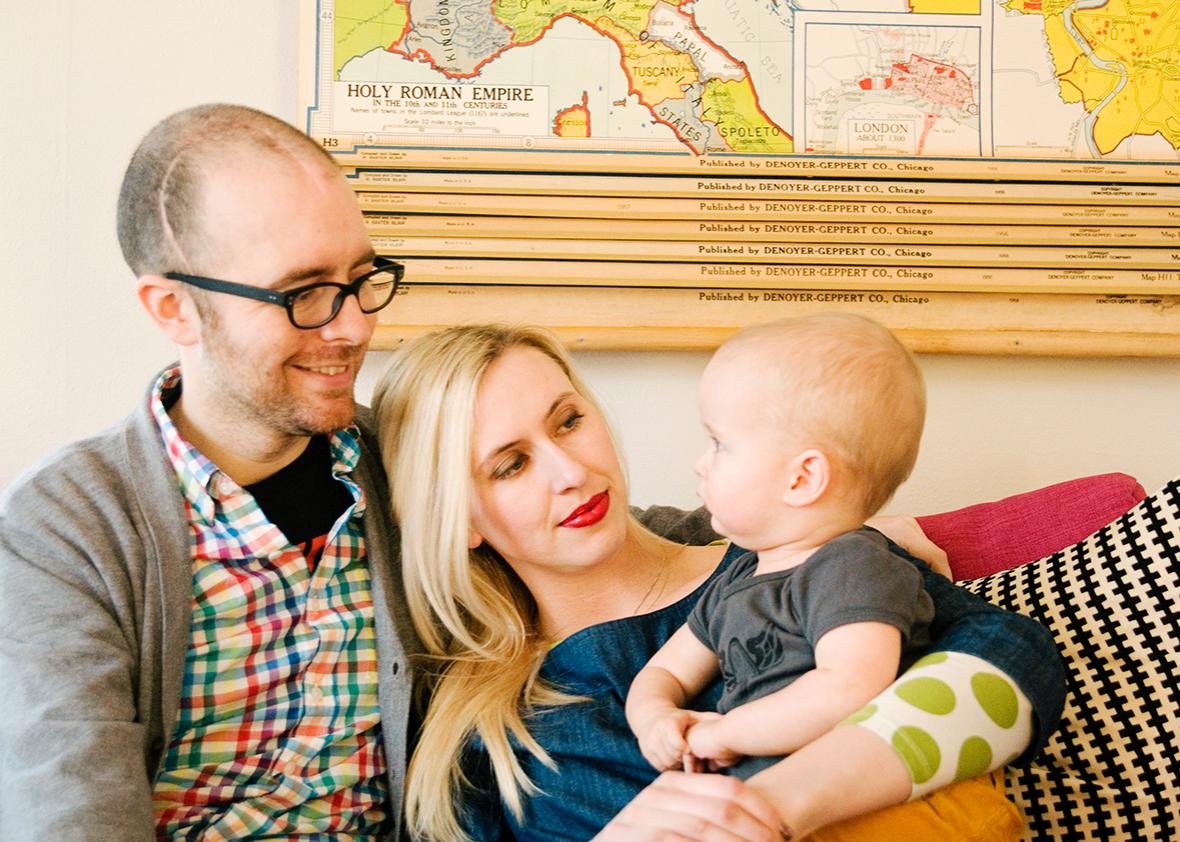“Wherever you go, there you are.” My father quoted the words of Jon Kabat-Zinn, the famous mindfulness advocate, to me my entire life.
He said this whenever I wanted to run away from something that was too hard: the varsity basketball team, where I spent a significant amount of time on the bench, avoiding eye contact with my coach and hoping not to have to break a sweat; my Latin class in college, where I struggled with conjugations and pronunciation; a boss who once told me to be “less myself” at work.
My father—and I can say this because he’s dead and won’t read this and get all bent out of shape—was wrong. Wherever I go, I’m wherever I’d rather be. I’m a modern-day time traveler; the constraints of time and space do not apply to me.
My phone is my time machine, and the cool blue light that is undoubtedly destroying my circadian rhythms helps me slip easily into another life, the one where I’m 28 and recklessly, heedlessly in love with a man who makes me Robyn mix CDs and leaves them in my car. The one where I’m 29 again and pregnant with the baby the doctors told me not to have but who I knew would keep my husband alive a little bit longer. Or the one where I’m 31 again, carrying the man I love down the hallway to the bathroom, staying up at night to hear his breath, knowing someday I would miss that gentle sound.
I used to get my digital adrenaline rush from likes and faves and follows, but now I get it quietly, from peering through these keyholes to our past. I am not supposed to be there, I know. I am supposed to be living in the moment, embracing the power of now and all that. But I can’t help but sneak a few peeks at who we used to be.

Nora McInerny Purmort
Our son knows his father through my phone. Ralph was 22 months old when Aaron died, and any memories he has of him are all mixed up with stories he’s heard from me and photos and videos he can see whenever he’d like. His elegant toddler fingers carefully swipe their way through photos of his father in chemotherapy, on top of the colorful adobe murals of Salvation Mountain in the California desert, doing his favorite “tourist wave to the camera” in front of an explosion of paint and color.
Ralph consumes videos of Aaron reading him bedtime stories the way other kids binge Curious George. He knows that Aaron is gone, and that he will not return, but death is a hard concept to grasp, even for me. It seems impossible that Aaron could be dead, even though I licked his ashes from my fingertips when we spread them in the Rum River. “Will he come back?” Ralph sometimes asks, and the answer I give him always shocks me. “No, he won’t,” I say heavily. Ralph nods silently and moves on. He is in the acceptance phase of grief, and I am jealous. Someday that truth will hurt him, but now, he only knows it should hurt, because he sees that it hurts me that we are both fatherless. “Damn it!” he says, “our dads are DEAD!” He shakes his head as he sits with me, holding my hand and marveling over the what-the-hellness of it all, then hits the play button again.
I’m grateful for every photo and video, each one a breadcrumb that lures me back into the past. One of the benefits of giant tech companies having all of your data and knowing everything about your life is how damn good it feels to know that they’ve kept your dead people alive for you. (Thanks, Google and Facebook!) Somewhere in a big, anonymous server, there is my husband, and I have the power to call him back from the dead. I can type in even the smallest sliver of recollection—a date in time, the color of a shirt he often wore, a city we loved to visit—and be rewarded with our memories in full. Here is an entire Gchat conversation from the day after our first date, moody photos of the two of us holding hands in the Redwood forest after our son was born. The entirety of our courtship and marriage is out there waiting for me, always ready to welcome me back. Some days, out of nowhere, our photo storage software will send a GIF it’s made, and there we are, alive together, on our wedding day or at our son’s baptism, smiling on the tracks we were tied to and totally oblivious to the train we knew would someday hit us.
Two days before our wedding in December 2011, I got the word NOW tattooed on the inside of my wrist, a “something new” to remind me to stay present in the midst of a devastating medical prognosis. I spent all three years of our marriage In the Moment. The blood draws where they couldn’t get a vein and Aaron would patiently smile while his toes curled in pain. Aaron and our newborn son in matching hospital bracelets: one for chemo, one for the neonatal intensive care unit. The Father’s Day barbecue on our back deck, when Ralph walked for the first time. Ralph crawling into a hospital bed to kiss his father goodbye. I can see now what I was too busy surviving to really acknowledge: that we experienced something hard and horrifying, together, and with great love.

Gracie and Gold
Denial is one hell of a drug, and that’s what these digital caches provide me: a way to pretend that when I say “my late husband” I mean that he is actually just impolite and chronically tardy, and not dead of brain cancer at 35.
Aaron is not late. We will not have another child together, or watch another rerun of Buffy the Vampire Slayer in bed. The voicemails I have saved in my phone are the last ones he’ll leave me, but I keep them anyway, just to hear him tell me that we are out of milk, and that he loves me.
My reality, by the way, is not all bad. My life is good. When I am in the present moment, I can see that I have work that means something to me. I have a child I adore. I got to love and be loved fully. I was seen and known by someone who smelled my terrible armpits and heard me sing out loud and still said, “Yes, you. I will marry you.”
I’ve always thought of getting lost in my phone as a way of visiting my different lives, but I know it is not. I do not have two different lives, one where Aaron is alive and one where he is not. I have one life, and Aaron’s love and death are an indelible part of it. My life is like one of those weird rubber band balls my dad always had in his office that never seemed to change size no matter how many pieces were peeled away from it. I have layers with Aaron and layers without him, but they’re all mixed up. They are all a part of my present moment, because they are all a part of who I am.
Someday I will not need to escape into my phone like I do. Someday my present moment will be enough. There is no cure for grief, and I wouldn’t want one anyway. There is only time, which ensures that our photos, voicemails, and videos will become just like the dusty albums and shoeboxes our grandparents kept in their attics—untouched for decades not because they are forgotten but because that urgent need to access them has finally faded. Until then, I’ll be here with my phone and my laptop, able to be wherever I want to be, wherever it is I go.
